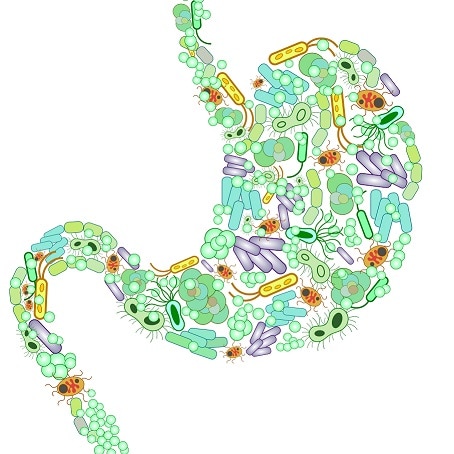Does Exercise Benefit Digestive Health?
Research shows that physical activity may alter bacterial composition and boost overall health.

Gut microbiota has been a hot topic recently, and for good reason, as it is a key indicator of health. Gut microbiota contains trillions of micro-organisms, including at least 1,000 species of known bacteria, with more than 3 million genes (Gut Microbiota for Health 2016). There are many benefits to having a healthy gut, including but not limited to
Researchers have discovered a link between exercise and the bacterial composition of the gut. Initial evidence suggests that exercise can alter the bacterial composition of the digestive system (University Health News Daily 2014). Diversity may be the key. The study found that athletes showed greater diversity in gut microbiota than control subjects. The athletes (rugby players) also had higher proportions of most types of micro-organisms. One particular bacterium, called Akkermansiaceae, found in greater amounts in the rugby players, has been linked to lower risk of obesity and of systemic inflammation (Reynolds 2014). Diet is still important, but could exercise be a legitimate ally in digestive health?
Charlie Hoolihan, fitness researcher and personal training director at the Pelican Athletic Club in Mandeville, Louisiana, says that gut microbiota profiles, like DNA markers for exercise and nutrition, "represent a fascinating potential for individualization of diet, fitness routines and even medical prescriptions." However, he suggests fitness professionals take the results in stride, saying the research points out something we already know: Exercise is beneficial to your digestive process. "Now we have some hints about exercise's possible stimulus," he says. "These are just hints. My guess is that gut microbiota may be as complex as DNA and that attempts to make conclusions from the research for mainstream individualization may be a bit preliminary."
Welcome to IDEA Body Lab!
Each issue, this new column will highlight an unusual or esoteric fact about the body, along with clear, expert advice about its relevance to fitness professionals. If you'd like to share a fun fact about anatomy, biomechanics or one of the body's main systems, contact IDEA executive editor Joy Keller, [email protected].
References
Clarke, S., et al. 2013. Exercise and associated dietary extremes impact on gut microbial diversity. Gut. doi:10.1136/gutjnl-2013-306541.
Gut Microbiota for Health. 2016. Gut microbiota info. Accessed Dec. 2016. https://www.youtube.com/watch?v=JFWv42U1l4A.
Reynolds, G. 2014. Exercise and the 'good' bugs in our gut. The New York Times. Accessed Dec. 2016.https://well.blogs.nytimes.com/2014/06/18/exercise-and-the-good-bugs-in-our-gut/
University Health News Daily. 2014. The benefits of exercise for digestive health. Accessed Dec. 2016. http://universitywhealthnews.com/daily/digestive-health/the-benefits-of-exercise-for-digestive-health/#comment-on-post.
Joy Keller
Joy Keller is the director of marketing communications & PR at IDEA, and has also served as executive editor of IDEA Fitness Journal, IDEA Fitness Manager, IDEA Pilates Today, and IDEA Fit Business Success. She is also a certified personal trainer, indoor cycling instructor and yoga teacher (RYT 200).






